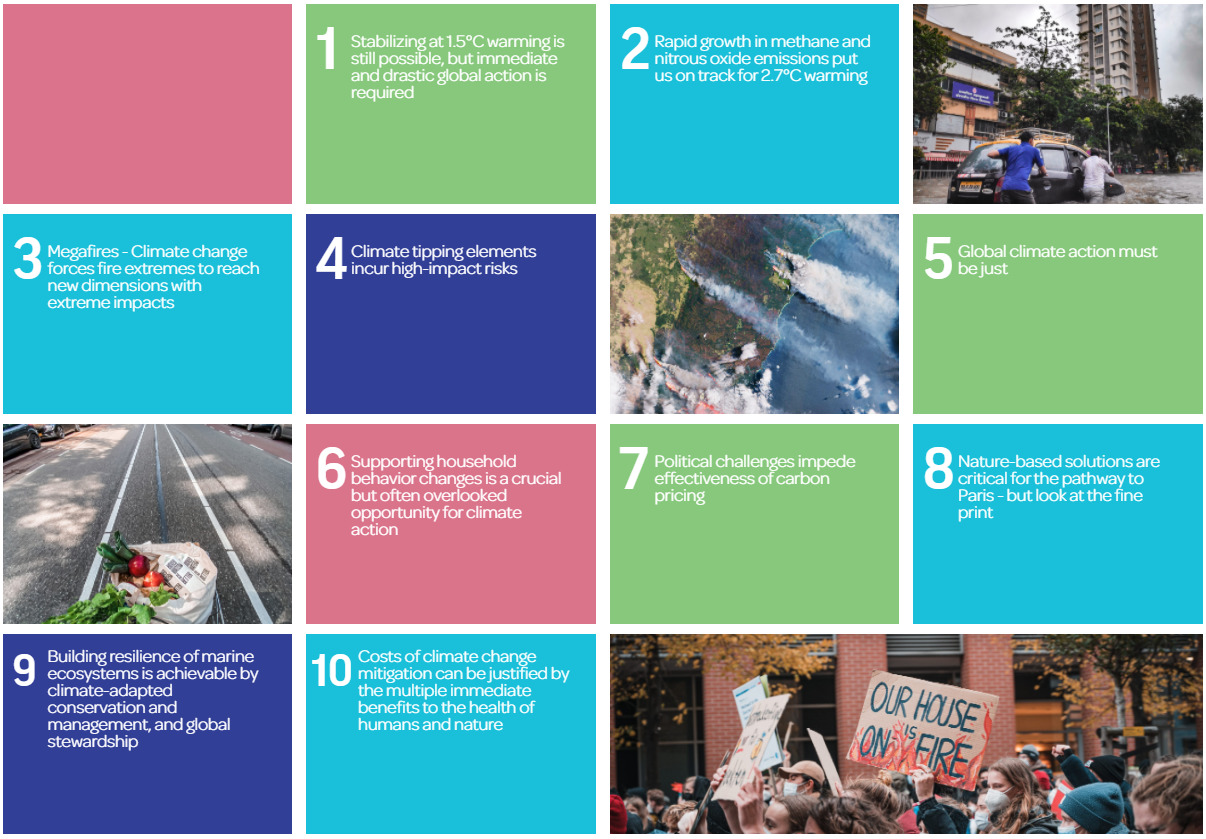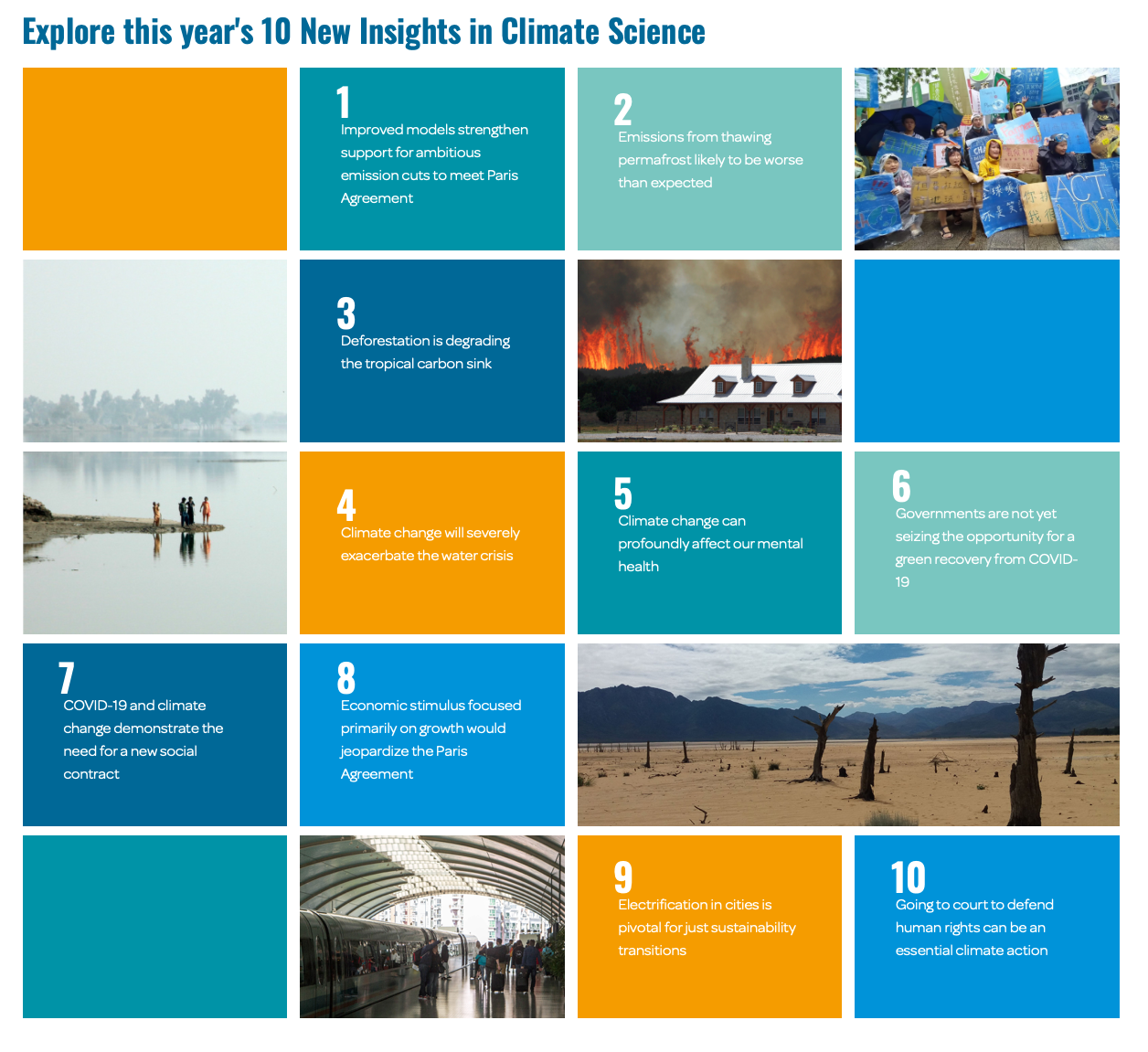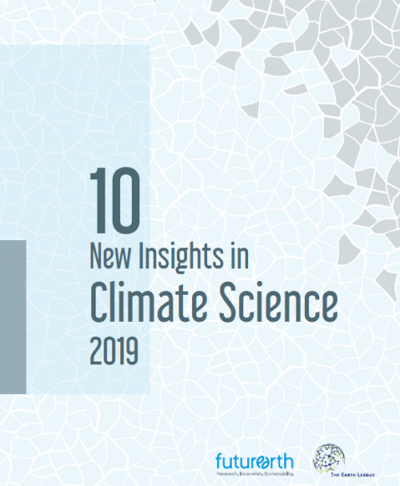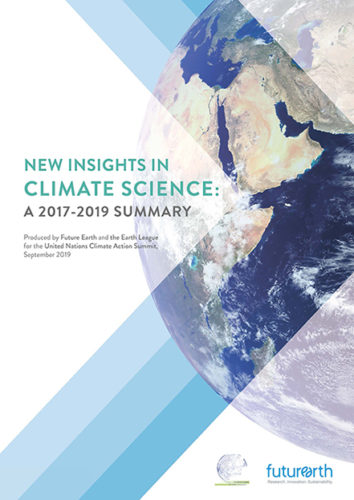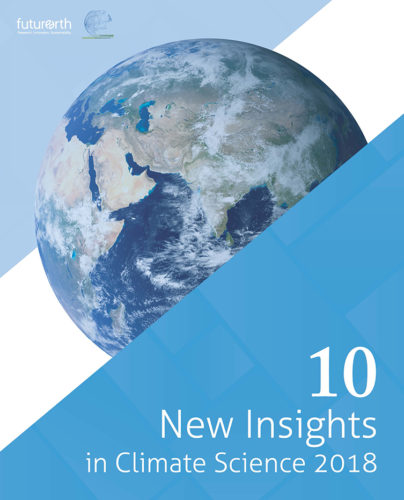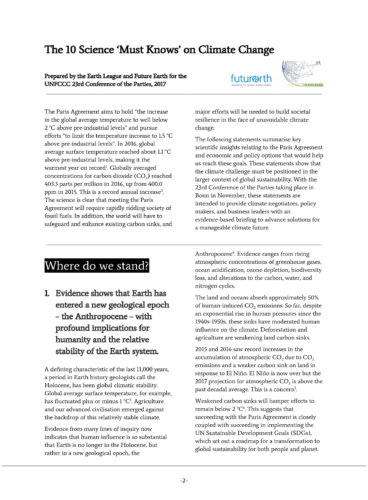The 10 New Insights in Climate Science series, launched with the UNFCCC at the COPs since 2017, is a collaborative initiative of Future Earth, the Earth League and the World Climate Research Programme,
synthesising the latest developments in climate change research.
The 10 New Insights in Climate Science responds to clear calls for policy guidance during this climate-critical decade.
With impacts from climate change threatening to be as abrupt and far-reaching in the coming years as the current pandemic, leading scientists have released a compilation of the 10 most important insights on the climate from the last year to help inform collective action on the ongoing climate crisis.
In a report presented today to Patricia Espinosa, Executive Secretary of the United Nations Framework Convention on Climate Change (UNFCCC), report authors outlined some of 2020’s most important findings within the field of climate science, ranging from improved models that reveal the need for aggressive emission cuts in order to meet the Paris Agreement to the growing use of human rights litigation to catalyze climate action.
The 10 New Insights in Climate Science 2020 report was prepared by a consortium of 57 leading researchers from 21 countries. As a partnership of Future Earth, the Earth League, and the World Climate Research Programme (WCRP), the series synthesizes the latest sustainability research for the international science-policy community, with annual installments since 2017.
Click here for the Japanese version
The 10 New Insights in Climate Science 2019 was presented to UNFCCCs Executive Secretary Patricia Espinosa at the United Nations Framework Convention on Climate Change 25th Conference of the Parties (COP25) in Madrid, 6 December, 2019, and distributed to negotiators and journalists.
The report highlights the most recent advances over the last 12 months in the scientific understanding of the drivers, effects, and impacts of climate change, as well as societal responses. It is the third annual publication by Future Earth and The Earth League, two major international organizations representing networks of global sustainability scientists. It summarizes recent Earth-system science, policy, public health, and economic research.
New insights in Climate Science: A 2017-2019 Summary
Future Earth and the Earth League collated the most up-to-date science since 2017, on the drivers and impacts of climate change, to make the case that achieving the Paris Agreement is not only necessary, but possible. This summary was produced for the United Nations Climate Action Summit, September 2019, to inform national leaders and policymakers participating in the Summit.
Our insights are featured in a landmark new report for UN Climate Action Summit 2019. The report, United in Science, includes details on the state of the climate and presents trends in the emissions and atmospheric concentrations of main greenhouse gases. It highlights the urgency of fundamental socio-economic transformation in key sectors such as land use and energy in order to avert dangerous global temperature increase with potentially irreversible impacts. It also examines tools to support both mitigation and adaptation.
The landmark report was coordinated by the World Meteorological Organization and compiled under the auspices of the Science Advisory Group to the UN Secretary-General’s Climate Action Summit contains short summaries contributing agencies, including Future Earth, Earth League, Global Carbon Project, the Intergovernmental Panel on Climate Change, UN Environment (UNEP) and WMO.
10 New Insights in Climate Science 2018
From fires in North America to floods across Asia, many societies have begun to experience more severe impacts attributable to human-induced climate change. This report looks at the top 10 climate insights from 2018 and was produced for UNFCCC COP 24 in Katowice, Poland
10 Science ‘Must Knows’ on Climate Change 2017
Our first synthesis of recent climate change research and assessments, prepared for UNFCCC COP23 in Bonn, Germany.

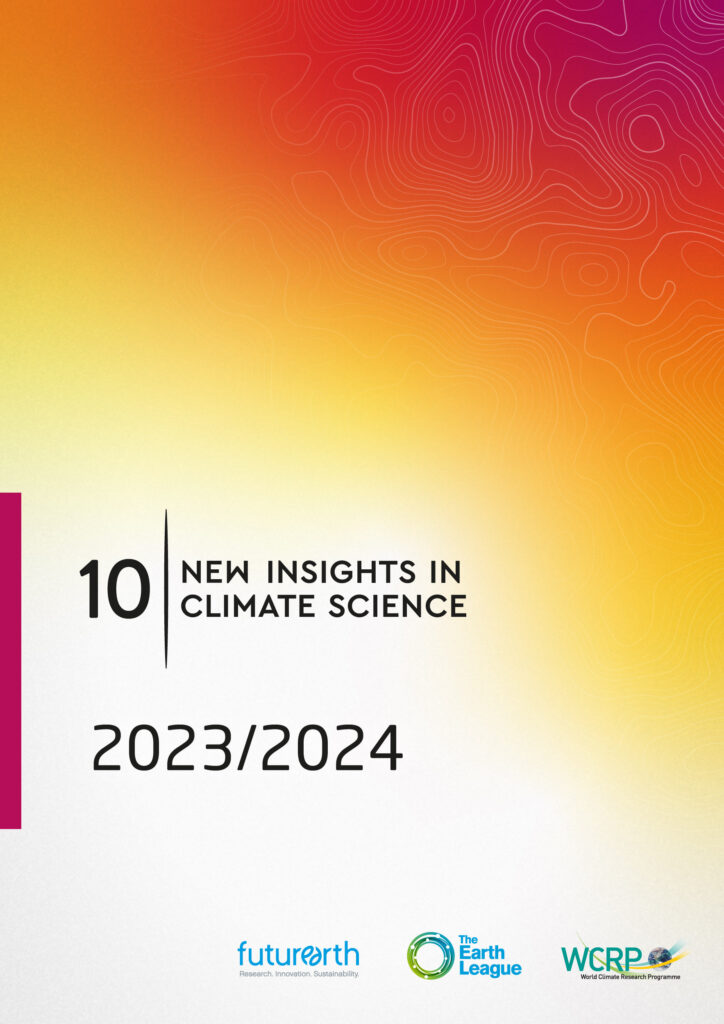
![cover10[2]](https://futureearth.org/wp-content/uploads/2022/11/cover102-724x1024.png)
